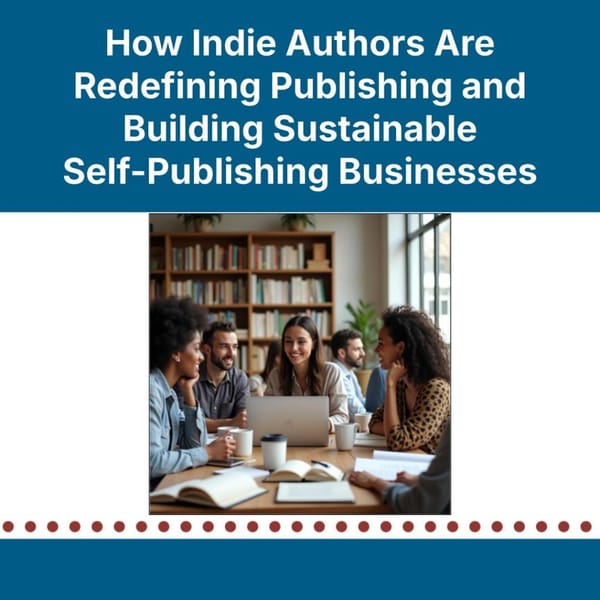A Year after TikTok Users Exploited Amazon’s E-Book Returns Policy, What’s Been Done to Protect Indie Authors?
In June of last year, a TikTok trend that showed viewers a “life hack” for getting free books from Amazon caused a major stir in the indie author world. The impact and response were equally quick, with indie authors reeling against the trend, but not before a flood of returns that cost authors significantly. A year later, we’re revisiting the timeline of events to give you the full scope of what happened, how it happened, and what was done in the aftermath to keep it from happening again.
The Trend
TikTok, a viral social media app known for its short-form content and impressive algorithm, quickly became another tool in the indie author toolbox upon its inception in 2016. Able to quickly attune delivery of the user’s desired content based on their viewing history and other factors, the app also became a way to spread information, tips, and advice.
In March 2022, a video went viral on the platform showing readers how shoppers could purchase and return books by exploiting a loophole in Amazon’s e-book returns policy. It worked like this: readers would select a book they wished to read and purchase it through Amazon. They would then read the book as quickly as possible and utilize Amazon’s return policy to return the book before the seven-day window for returns closed. Afterward, the reader would return the book and recoup its cost.
The “hack” went viral, sparking a firestorm of returns on the platform from readers looking to save money or, according to NPR, hoping to take a dig at the retail giant and founder Jeff Bezos. Instead, the move subsequently deducted the royalties from authors’ accounts, despite the book—a product—being consumed. Authors whose books were returned were forced to pay delivery fees for the returned e-books, and for some who experienced a large number of returns, Amazon imposed additional penalties, including account reviews.
The window for returns did not apply to Amazon’s Kindle Unlimited program, which allows subscribers to check out books enrolled in the program and pays authors based on the number of pages read.
The Response
Indie authors, known for their ability to adapt to a rapidly changing landscape, responded to the trend quickly, reaching out to readers via social media and urging them to stop the practice, equating it to theft—to sometimes mixed responses from readers. Many also utilized organizations of collective voices to approach Amazon with their concerns.
Not too long after the viral trend video, user Reah Foxx launched a petition on Change.org, which amassed nearly 80,000 signatures encouraging Amazon to amend the policy.
“There has been a huge upswing in author’s ebooks being returned to Amazon AFTER they have been read,” Foxx wrote in the petition. “As a reader this is VERY upsetting. … Authors are not being paid accurately for their art. Please, Amazon change your policy!” According to Foxx, one author had received returns in the single digits in the two months prior to the trend yet experienced triple-digit returns of their books in March, after the trend went viral.
Largely, Amazon was receptive to conversations about the policy, and in September 2022, the Authors Guild and Society of Authors reported they were in discussions with the company regarding the e-book return policy. “Yesterday, Amazon informed us of its plans to change its ebook return policy to restrict automatic returns to purchases where no more than 10 percent of the book has been read,” the Authors Guild reported. “The planned change will go into effect by the end of the year. Any customer who wishes to return an ebook after reading more than 10 percent will need to send in a customer service request, which will be reviewed by a representative to ensure that the return request is genuine and complies with Amazon’s policies against abuse.”
Amazon agreed to roll out a new policy in favor of authors’ pleas before the end of the year but missed the deadline. In January 2023, Amazon announced to The Authors Guild that the new policy would be implemented before the end of the month.
Change
Almost one year after the original TikTok video went viral, on February 1, 2023, as reported by The Authors Guild, Amazon officially updated its returns policy. Under the new policy, customers “may not be eligible for a refund if a book has been partially read or if we detect account abuse.”
Amazon also added a notice to the Kindle Orders page stating that “the self-service refund option may not be available” to users with a high rate of returns.
The new policy protects indie authors from the effects of the trend by creating checks and balances within Amazon’s economic system to ensure readers and authors alike are treated fairly. With this new policy, readers can still return books purchased accidentally and under other specific circumstances, but authors are no longer subject to the waves of returns they experienced at the height of the trend. The experience was a collaborative effort among authors, author organizations, and Amazon, and it became a test case for the unity among the indie author community and the distributors who they partner with to sell their books.
Moving Forward
This new policy only applies to Amazon; other major distributors within the e-book sphere have separate return policies and requirements. Barnes & Noble is stricter about digital content purchased on their platform. The company’s return policy reads: “Magazines, newspapers, used books and shipping fees are not returnable or exchangeable. Digital content, including eBooks, audiobooks, digital magazines and newspapers, Access Codes, gift cards, and shrink-wrapped items that have been opened, are not returnable.”
Whether this policy was implemented before or after the viral trend and Amazon’s amendments to their own policy is unclear.
Google Play’s policy on returning e-books mirrors Amazon’s old policy, and Apple’s policy requires users submit a refund request for review by the company in order to be considered eligible.
Whether these companies plan to roll out changes of their own is unclear, but it is important to note that, as Amazon is the largest distributor amongst them, the change to the policy was widely impactful.
Authors should regularly take steps to ensure they’re making the best decisions for their business regarding returns, the first of which is to ensure their book is a quality product. Changes in return policy are not meant to mitigate customer dissatisfaction but to prevent the exploitation of internal policies. The second thing authors should consider is how they distribute their books. Authors using distributors have to work within the policies and procedures outlined in the terms and agreements, but for many, Amazon’s eventual response to the trend was an uplifting example of how distributors can be willing to sit down at the table and reexamine policies to benefit not only themselves but those relying on their platform for their author businesses as well.











